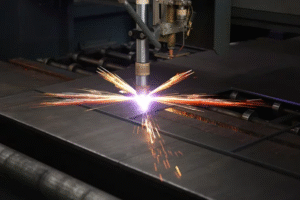
How to Preserve Old Memories by Digitizing Photos in 2025
In a world where technology evolves quickly, preserving precious memories captured in old photographs has become more important than ever. Whether it’s a black-and-white wedding photo from your grandparents’ time or childhood pictures in fading albums, digitizing photos is one of the most reliable ways to protect and relive these moments.
In this blog, we’ll explore why photo digitization matters, how to do it effectively, and what tools and tips can help you keep your memories safe for years to come.
Why Digitizing Photos Matters
Old photographs are vulnerable to time. They fade, tear, or get damaged by moisture, sunlight, and handling. By digitizing them, you can:
-
Create permanent digital backups
-
Share photos easily with family and friends
-
Organize memories by date or event
-
Use them in creative projects, such as digital scrapbooks or embroidery digitizing
Digitization also adds emotional value—helping future generations connect with their heritage.
Step-by-Step Guide to Digitizing Photos
1. Gather and Sort Your Photos
Start by collecting all physical photos, albums, and negatives. Group them by category family, events, timelines to make the process smooth and organized.
2. Clean and Prepare
Gently clean photos using a soft, lint-free cloth. Avoid harsh chemicals or rubbing. Also, clean scanner glass or phone lenses for clarity.
3. Choose a Digitizing Method
Select the method based on your budget and photo condition:
-
Flatbed Scanners: Best for high-quality archival scans
-
Smartphone Apps: Ideal for quick scanning (e.g., Google PhotoScan, Photomyne)
-
Camera Setup: Use a DSLR with a tripod for bulk scanning
4. Scan or Capture Photos
Set the resolution to at least 300 DPI for standard use. For enlargements or editing, go up to 600 DPI. Crop and align the images carefully while scanning.
5. Save and Backup
Save files in JPEG or TIFF format. Organize folders by year, event, or person. Then back up your digital files on:
-
External hard drives
-
Cloud storage (Google Drive, iCloud, Dropbox)
-
USB drives for easy sharing
Best Tools for Digitizing Photos at Home
| Tool/App | Best Use Case |
|---|---|
| Google PhotoScan | Mobile scanning with glare removal |
| Epson Perfection V600 | High-quality flatbed scanning |
| Photomyne | Fast album digitizing |
| Adobe Scan | General use + document storage |
| Microsoft Lens | Clean scanning for beginners |
Tips for Preserving the Digital Copies
-
Use descriptive filenames like “Mom_Birthday_1985.jpg”
-
Add metadata using tools like Adobe Bridge to store dates and locations
-
Create photo books or digital albums for storytelling
-
Keep multiple backups in different locations to avoid data loss
Digitizing is only part of the journey; organizing and maintaining your digital archive ensures your memories last forever.
Conclusion
Digitizing photos is one of the most meaningful steps you can take to preserve your family’s legacy. It transforms fragile paper memories into secure digital files that can be enjoyed, shared, and passed down through generations. Whether you’re working with a few treasured prints or an entire archive, the process is easier than ever in 2025—with tools, apps, and scanners designed for all skill levels.
Start now, and take control of your photo history before time fades it away.
Frequently Asked Questions (FAQs)
Q1: What is the best resolution to scan old photos?
For general use, 300 DPI is sufficient. If you plan to edit or enlarge images, scan at 600 DPI or higher.
Q2: Is it better to scan or photograph old prints?
Scanning offers more consistency and detail. However, a good camera setup with proper lighting can also produce excellent results.
Q3: Can I digitize damaged photos?
Yes. Even torn or faded photos can be scanned and digitally restored using photo editing software like Photoshop.
Q4: How do I store digitized photos safely?
Use cloud storage, external hard drives, and USBs. It’s best to keep at least two backup copies in different places.
Q5: Are there professionals who can digitize photos for me?
Yes. Many photo labs and online services offer bulk photo digitizing for those who prefer not to do it at home.


